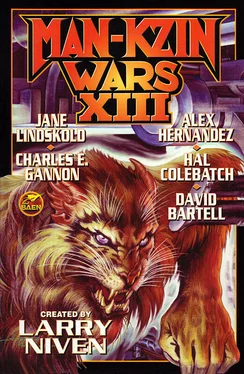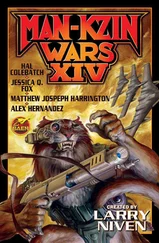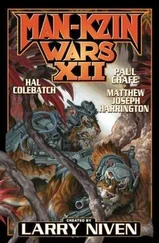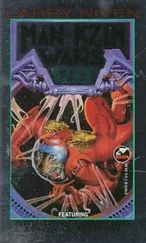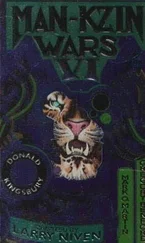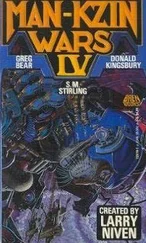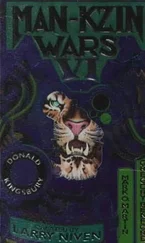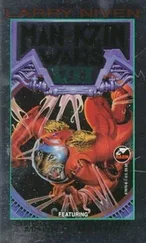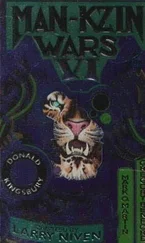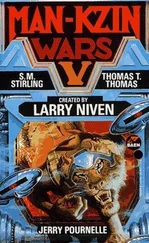Hal Colebatch - Man-Kzin Wars – XIII
Здесь есть возможность читать онлайн «Hal Colebatch - Man-Kzin Wars – XIII» весь текст электронной книги совершенно бесплатно (целиком полную версию без сокращений). В некоторых случаях можно слушать аудио, скачать через торрент в формате fb2 и присутствует краткое содержание. Год выпуска: 2015, Жанр: Фантастика и фэнтези, на английском языке. Описание произведения, (предисловие) а так же отзывы посетителей доступны на портале библиотеки ЛибКат.
- Название:Man-Kzin Wars – XIII
- Автор:
- Жанр:
- Год:2015
- ISBN:нет данных
- Рейтинг книги:4 / 5. Голосов: 1
-
Избранное:Добавить в избранное
- Отзывы:
-
Ваша оценка:
- 80
- 1
- 2
- 3
- 4
- 5
Man-Kzin Wars – XIII: краткое содержание, описание и аннотация
Предлагаем к чтению аннотацию, описание, краткое содержание или предисловие (зависит от того, что написал сам автор книги «Man-Kzin Wars – XIII»). Если вы не нашли необходимую информацию о книге — напишите в комментариях, мы постараемся отыскать её.
Man-Kzin Wars – XIII — читать онлайн бесплатно полную книгу (весь текст) целиком
Ниже представлен текст книги, разбитый по страницам. Система сохранения места последней прочитанной страницы, позволяет с удобством читать онлайн бесплатно книгу «Man-Kzin Wars – XIII», без необходимости каждый раз заново искать на чём Вы остановились. Поставьте закладку, и сможете в любой момент перейти на страницу, на которой закончили чтение.
Интервал:
Закладка:
“The oldest male has proven entirely intractable, as we suspected he might be.”
“Too old?”
Selena nodded. “That’s our best guess. He’s not particularly sociable with the one that’s two months younger than he is, but we can’t tell if that’s normal, a post-trauma reaction, or just a personal quirk.” She smiled. “He’s the only one we’ve named, so far. Partly because he’s older, partly because he had such a distinctive personality.”
“Dare I ask what you’ve named him?”
“Cranky. Some insist on the longer version: Cranky Cat.”
Dieter raised an eyebrow. “Something tells me you never expect to establish communications with him, giving him a name like that.”
“It’s hard to see how we would forge a communicational link with him: he cannot be safely approached, and he is resistant to both positive and negative operant conditioning. Surprisingly so, for a young creature.”
“Although that could be the norm, for kzinti.”
“Absolutely so. And I could see several ways in which it would be a necessary survival trait. The kits are ferociously competitive with each other from a very early age. In Cranky, what we perceive as stubbornness and irascibility might well be tenacity and aggressiveness, now warped by being penned up in an alien, aversive environment.”
“And the second oldest male?”
Selena shrugged. “Hard to tell; he’s had a lot of trouble.”
“Why? I thought he was fine when we got him.”
“He was. But although he was probably too young to remember any of the trauma of his capture, he was old enough to feel it, for it to leave an emotional scar.”
Dieter clucked his tongue. “Kind of hard to think of kzinti having emotional scars.”
“I understand, but they can and do get them. In his case, I don’t think it would have been too bad: they are very resilient. But without a mother as a source of basic mammalian reassurance, I suspect his mind tucked the experience under his growing consciousness, and is now experiencing its side effects.
“From the beginning, he rejected food until he became desperately hungry. We had to feed him intravenously twice to ensure his survival. Of course, it doesn’t help that the damn milk substitutes just don’t appeal to the suckled kits.”
“I thought it was genetically reengineered from samples, that it was an exact match for their real milk.”
“Oh, it has all the right chemicals in all the right proportions, but something is still missing. As a lab-tech in the biology group put it, ‘ersatz is ersatz.’ And we should hardly be surprised: we’ve done no better with our own foods.”
Dieter smiled ruefully. “True enough. I’ve had tasty non-alcoholic beer, except it never really tastes like beer.”
“Yes, and given how much more acute the kzin senses of smell and taste are-about thirty thousand times and one hundred times, respectively-it’s hardly surprising that they reject the substitutes we’ve created.”
“And so the younger kzin male is weak from starvation?”
“Yes. It will be good when we can move him to unprocessed meat, about a month from now.”
“But Hap looks pretty robust.”
“That’s probably because he was newborn when he was taken.”
“What? Wouldn’t that make him weaker? More vulnerable?”
“No. He hadn’t been suckled yet. So, apparently, if newborn kzinti haven’t yet had natural milk, they tolerate our synthetics much better.”
“So he’s feeding well?”
“I don’t know that I’d call his intake anything more than ‘adequate.’ He’s still not a fan of our version of kzin food, but he doesn’t find it particularly aversive, either.”
“And the female kits?”
Selena nodded. “One is having an easier time of it; the other is in the worst shape of all. I expect we’ll lose her within the week.”
“What’s wrong with her?”
Selena shrugged, jammed her hands deep in her lab coat pockets. “Damned if I know. But my gut level instinct is that she has no will to live. I know that sounds bizarre to say about so young a creature, but it’s been true from the first. Listless, limp as a wet rag. She’s been on IV for the past three days; we had to catheterize her this morning. Nothing we do matters: she just keeps fading away, further and further. The other female is the exact opposite: some think she’s the most promising of all the kits. She’s certainly the apple of the director’s eye, and is surprisingly friendly to most of her handlers.”
“So, that’s good.”
“No, that’s bad. Or rather, it’s too much of a good thing. Now Pyragy has started exploring the possibility of making the females the primary focus of the research program, with the intent of increasing their intelligence and using them as a long-term weapon against the natural kzinti males. Kind of kzin Mata-Hari Delilahs that are secretly working for the good of humankind.”
Dieter rolled his eyes. “Please tell me you are making that up.”
“I wish I was. Unfortunately, it’s just further proof that the entire project is being administrated by a scientific illiterate.”
“What do you mean?”
“I mean that he’s still talking about this after Boroshinsky delivered his preliminary reports regarding the cause of the females’ lack of intelligence. And Boroshinsky’s preliminary reports are often more meticulous than papers presented at the Royal Academy.”
Dieter lagged behind; the orange and black ball of fur that he had dubbed Hap had flopped down in a histrionic excess of weariness. Dieter crouched down to be closer to him: through the glass, the kzin’s eyes narrowed happily, his torso pumping deeply and only a little more quickly than normal. “And what are Boroshinsky’s preliminary conclusions?”
“Firstly, the cause of the females’ semi-sentience is clearly genetic. So no amount of rehabilitation is going to work. But secondly, Boroshinsky also confirmed that the genetic constraints upon their intelligence is not merely a matter of a single, sweeping alteration to the original female genetics: it involves an ongoing program to maintain that genotype.”
“I don’t understand.”
Before she could stop herself, Selena had her hands out of her pockets, punctuating and emphasizing. “The kzinti had those clones on their ship-and probably near all breeding sites-to ensure that their females remain subsentient. Each of the clones belongs to one of sixteen different gene patterns, which, despite a great deal of diversity in other particulars, have two genetic traits in common: diminished development of the higher-function brain elements and neurochemical deficiencies. Both of which are sex-specific.”
Dieter stood, looked more puzzled. “Okay, I get the part about diminished brain development. I’m guessing that this trait keeps their equivalent of the cerebral cortex from becoming large enough to support sophisticated thought?”
“Correct. Whereas the neurochemical deficiency works by reducing how frequently and effectively the synaptic gaps are resupplied with the necessary bioelectric transmitters.”
“So the brain is smaller and slower.”
“Right. But that’s arguably not the most important fact uncovered by Boroshinsky. The kzinti have taken another eugenic step to ensure that female cognitive impairment remains permanent: the clones.”
“How do the clones fit into this?”
“Boroshinsky’s guess is that despite the genetic alterations, there are occasional regressions to the original, undiminished female genotype. So what the kzinti are doing with the clones, at least on interstellar voyages, is constantly refreshing the desired genetic signal with fresh copies.”
“And that’s important because…?”
Читать дальшеИнтервал:
Закладка:
Похожие книги на «Man-Kzin Wars – XIII»
Представляем Вашему вниманию похожие книги на «Man-Kzin Wars – XIII» списком для выбора. Мы отобрали схожую по названию и смыслу литературу в надежде предоставить читателям больше вариантов отыскать новые, интересные, ещё непрочитанные произведения.
Обсуждение, отзывы о книге «Man-Kzin Wars – XIII» и просто собственные мнения читателей. Оставьте ваши комментарии, напишите, что Вы думаете о произведении, его смысле или главных героях. Укажите что конкретно понравилось, а что нет, и почему Вы так считаете.
